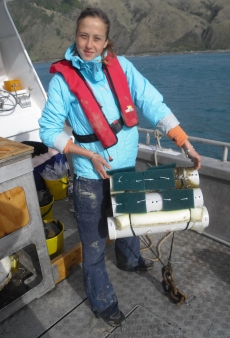Prospective students

Our School receives far more inquires from prospective students than we have places available. Space in the Sponge Ecology and Marine Conservation group is very limited at present and only a few MSc (with thesis) and PhD students can join each year.
If you would like to apply, please read all the information about our research, publications and the type of projects current students are working on. Then, if your interests have a good match with our work, please send the following to Dr James Bell:
- your research interests and a research question you may want to address
- a full CV, including any previous publications
- a copy of your university academic transcripts
- contact details for two people who can provide a reference.
Please note: this information should be of the highest standard and highlight why you would like to study with us.
Potential projects for new students
Funding
Scholarships
The main scholarships available to support doctoral students are:
- Victoria University of Wellington Doctoral scholarships
- Commonwealth Doctoral scholarships
- New Zealand International Doctoral Research scholarships
- NZAID scholarships (for students from developing nations)
- Other scholarships available from within your home country
Details of these scholarships can be found on the Scholarships website.
Occasionally other scholarships become available as part external research funding.
Other costs
When considering a potential project, please think about the costs involved with the project since very few PhD studentships have provision for consumables or travel funding. Although the group has a small research budget to pay for some of these expenses, students with funding will be considered ahead of those without.
Expectations
Students are expected to work hard and contribute to the activities of the research group, helping each other and sharing data where appropriate. Guidance from the group leader and other academic staff at university is given, but students are expected to drive their own projects.
We value publication of our research very highly and students are expected to work towards the timely production of manuscripts and present their work at national and international conferences and meetings.
Other study options
You should also consider applying for the Master of Marine Conservation course if you are interested in this area of study.
